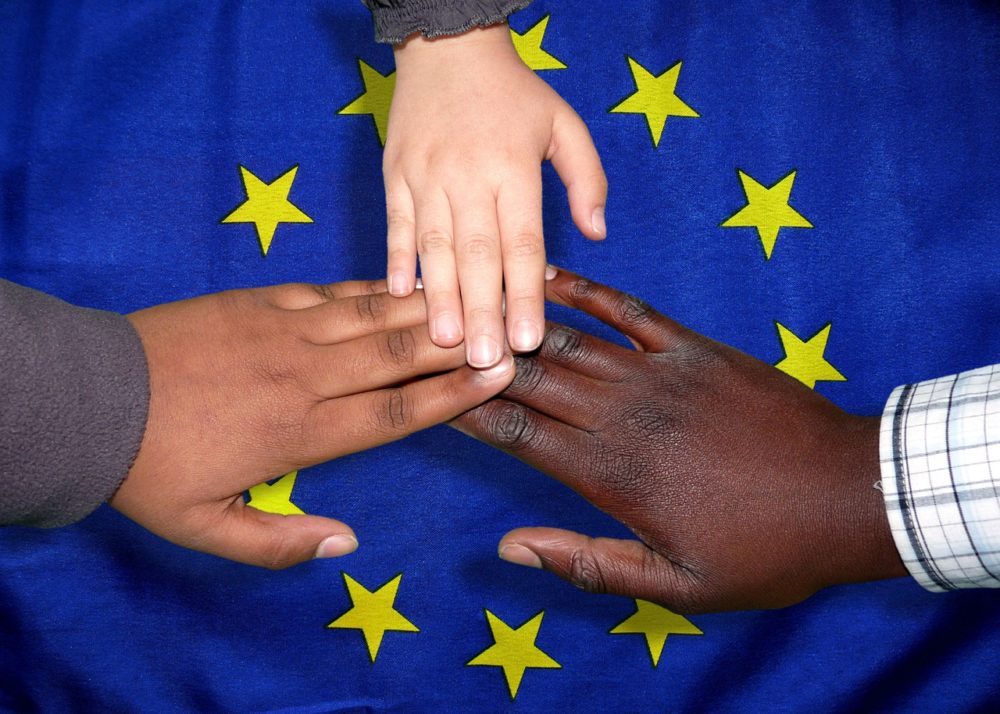Against the background of the global Corona pandemic, there is an urgent need for the EU to step up its international cooperation efforts.
By Michael Obrovsky
Reacting rather swiftly to the economic and social effects of the COVID-19 crisis, The European Council in its July 2020 meeting has agreed on the reconstruction instrument “NextGenerationEU“. The latter features a financial volume of € 750 billion to strengthen the EU budget 2021-2024 and € 1,074.3 billion for the long-term budget (MFF Multiannual Financial Framework) for the period 2021-2027. While new instruments and billions of euros are being provided for the recovery of the European economy, the EU’s international cooperation framework with the Global South is still based on a pre-COVID-19 approach.
The re-construction plan “NextGenerationEU” should help to repair the damage caused by the pandemic, boost economic recovery and employment, and protect jobs. “The European Green Deal and digitization will boost employment and growth and promote the resilience of our societies and the health of our environment,” is the credo of Ursula von der Leyen, the president of the European Commission. To support the member states, the European Commission proposed a series of instruments to assist the member states with their efforts in crisis management. The Commission also stressed that the EU will only be able to recover successfully, in the long term, if our partners around the world also recover. Investing in sustainable, global re-construction and partnership is therefore in the EU’s interest.
Against this background, the fact that the European Council did not consider adapting the instruments and the financial means of chapter 6 “Neighbourhood and the World” with regard to the post-COVID-19 situation is a missed opportunity. In particular, the implication of including the European Development Fund (EDF) into the Multiannual Financial Framework (MFF) remain unclear. Although the new instruments will arguably give the Commission more flexibility in the allocation of the financial means, they are not earmarked for repairing the damage of the pandemic. In the current pandemic situation, the European commitment to a new partnership with the Global South and the countries in the European neighbourhood (ENP) requires a clear financial engagement. The negotiations on the follow-up of the Cotonou Treaty between the ACP Countries and the EU are still lagging behind. Having in mind the COVID-19 effects on the countries of the Global South, recent successes of economic and human development are at risk of being lost for years. Therefore, the EU relationship to the European Neighbourhood and the World will be different after the COVID-19 crisis.
Looking at the EU Council’s July MFF proposal, there are significant cuts (€ 10,510 million) of chapter 6 compared to the MFF proposal of the Commission from May 2018. The total budget for chapter 6 “Neighbourhood and the World” for the next seven years is € 98.4 billion. Based on the Council’s conclusions and calculations from ECDPM, the budget – as far as we can compare the budget lines with the MFF 2014 – 2020 – has been increased by 2%. Budget lines for neighbourhood programmes and pre-accession programmes also increased, while budget lines for geographical and thematic programmes have been reduced. Yet budget lines for humanitarian aid, rapid response action and for emerging challenges were stepped up. Outside of the MFF, significant funds for a European Peace Facility and for a Solidarity and Emergency Aid Reserve have been established. Despite the increase of some budget lines and more flexible instruments, the scale of the COVID-19 crisis requires more financial support in chapter 6 in order to tackle the economic and social impacts of the crisis, support health infrastructure and crisis management mechanisms and thus prevent a deepening of social and political conflicts in partner countries.
Even if the EU’s strategic objectives of the Green Deal and digitization are to be taken into account in global relations, Europe’s prosperity and its role in the world will depend on how the global community manages with the consequences of the COVID-19 pandemic. This will require, in addition to aid packages and guarantees, a corresponding adaptation of European strategies and policies. The current debate on financing the Next Generation EU instrument and the MFF does not take sufficient account of the global dimension of the COVID-19 pandemic, and neglects the rapidly changing geopolitical dynamics. Although a decision of the European Council of July 2020 is already on the table, strategies, policies and instruments dealing with international and development cooperation should be expanded. After all, the role of Europe in the world is at stake.
Michael Obrovsky is Deputy Director of the Austrian Research Foundation for International Development (ÖFSE). His work focuses on issues of Austrian and international development policy, development cooperation and development financing.

